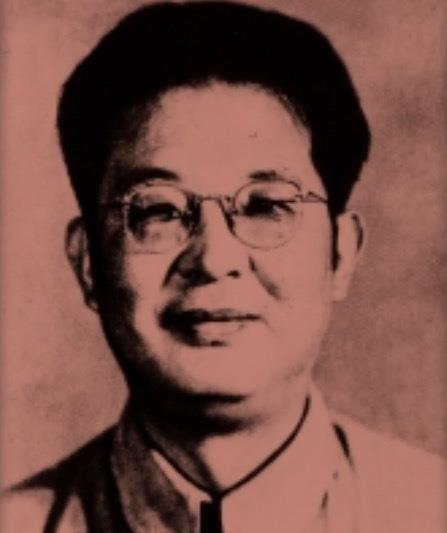The New Fourth Army Jinpu Road West Joint Defense Command was established in the winter of 1939. Prior to this, the 4th Detachment of the New Fourth Army created the Huainan Jinpu Road West Anti-Japanese Base Area, and 6 county-level anti-Japanese democratic regimes had been established, so in order to strengthen the leadership of the local armed forces, the Joint Defense Command was established, which was subordinate to the Jiangbei Headquarters of the New Fourth Army. So today, I will tell you about who are the three commanders of the Jinpu Road West Joint Defense Command? What happened after that?
The first commander was Wei Wenbo.

Born in 1905 in Huanggang, Hubei Province, Wei Wenbo studied at the Affiliated Middle School of Wuchang Zhonghua University in his early years, joined the Communist Youth League in 1925, served as director of the Organization Department of the CPC District Committee and secretary of the District Committee of the Communist Youth League, and later participated in the Nanchang Uprising, serving as director of the Organization Department of the Yichang County Committee of the Communist Youth League, secretary general of the Beiping Municipal Committee of the Communist Party of China, director of the Propaganda Department and secretary general of the Shanxi Provincial Party Committee. During the War of Resistance Against Japanese Aggression, he served as secretary of the central county party committee of the four counties of Ying (Shan), Yue (West), Luo (Tian), and Tai (Hu) of the CPC, the county magistrate of Dingyuan County in the Anti-Japanese Base Area of Jiangbei Province, the commander of the Jinpu Road West Joint Defense Headquarters, the chairman of the Jinpu Road West Regional Senate, and the commissioner of the Jinpu Road East Administrative Commissioner's Office. After the founding of New China, he successively served as secretary of the East China Bureau and minister of justice. He died on 15 November 1987 at the age of 82.
The second commander was Liang Congxue.
Liang Congxue is a native of Lu'an, Anhui Province, born in 1903, joined the Red Army in 1930, successively served as a company instructor, battalion commander and division commander in the Red 25th Army, and after the Long March of the Red Fourth Front, he carried out guerrilla warfare in the Eyu-Anhui Border Region and served as a regimental commander. After the Southern Red Army was reorganized into the New Fourth Army, Liang Congxue served as the column commander of the guerrilla column of the fourth detachment of the New Fourth Army, and in September 1940, he was transferred to the commander of the Jinpu Road West Joint Defense Headquarters, and later served as the commander of the Fourth Brigade of the Second Division of the New Fourth Army. In 1955, he was awarded the rank of lieutenant general. He died on 7 April 1973 at the age of 70.
The third commander was Zheng Baozhen.
Born in 1897 in Shou County, Anhui Province, Zheng Baozhen joined Wang Yaqiao's Axe Gang in his early years, and later served as the quartermaster of the Songhu Anti-Japanese Salvation Volunteer Army of the Nineteenth Route Army, and participated in the planning of the bombing of the Flagship Izumo of the Japanese Army, and the bombing of the Supreme Commander of the Japanese Army invading China, General Yoshinori Shirakawa, and other activities that shocked China and foreign countries. After Wang Yaqiao was assassinated, Zheng Baozhen returned to his hometown to organize anti-Japanese armed forces, and in 1938 he led his troops to join the New Fourth Army, successively serving as the commander of the Huainan Anti-Japanese Guerrilla Column of the Fourth Detachment of the New Fourth Army, the deputy commander of the Jiangbei Guerrilla Column of the New Fourth Army, the commander of the New Fourth Army Huainan Jinpu Road West Joint Defense Headquarters, the commissioner of the Huainan Jinpu Road West Commissioner's Office, and the deputy senate chief of the Suwan Border District Senate. After the founding of New China, he served as the mayor of Hefei. He died in December 1954 at the age of 57.
In February 1943, the Jinpu Road West Joint Defense Command abolished its title and established the Luxi Military Subdistrict of the Huainan Military Region, which was composed of the Fourth Brigade of the Second Division of the New Fourth Army.